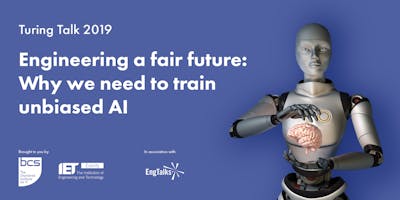Dr Krishna Gummadi, will explain why machine (data-driven learning-based algorithmic) decision making is increasingly being used to assist or replace human decision making in a variety of domains ranging from banking (rating user credit) and recruiting (ranking applicants) to judiciary (profiling criminals) and journalism (recommending news-stories). Recently concerns have been raised about the potential for bias and unfairness in such algorithmic decisions. Against this background, in this talk, we will attempt to tackle the following foundational questions about man-machine decision making:
(a) How do machines learn to make biased or unfair decisions?
(b) How can we quantify (measure) and control (mitigate) bias or unfairness in machine decision making?
(c) Can machine decisions be engineered to help humans control (mitigate) bias or unfairness in their own decisions?
------------------------------------------------------------------------------------
OUR SPEAKERS
Headline Speaker: Dr Krishna Gummadi
Insight Speaker: Caroline Jay
------------------------------------------------------------------------------------
AGENDA
17:30 - Registration
18:00 - Insight talk – Caroline Jay
18:15 - Turing talk – Dr Krishna Gummadi
19:30 - Drinks reception
20:30 - Close
------------------------------------------------------------------------------------
SPEAKER BIOGRAPHIES
Headline speaker: Dr Krishna Gummadi
Krishna Gummadi is the head of the Networked Systems research group at the Max Planck Institute for Software Systems (MPI-SWS) and a professor at the University of Saarland in Germany. His research interests lie in understanding and building social computing systems. His current projects focus on enhancing fairness, accountability, transparency, and explainability of automated (particularly, data-driven and learning-based) decision making systems. His work has been recognized by numerous awards including the ACM SIGCOMM Test-of-Time. He also received an ERC Advanced Grant in 2017 to investigate "Foundations for Fair Social Computing".
Insight Speaker: Caroline Jay
Caroline Jay is a Chartered Psychologist and Senior Lecturer in Computer Science at the University of Manchester. She is the Research Director of the UKRI Software Sustainability Institute; and an advocate for open and reproducible research. She is a Fellow of the Alan Turing Institute, and leads the University of Manchester Arm of the BBC Data Science Research Partnership. Caroline’s research examines how people interact with machines, from using apps, to designing algorithms.
Insight talk: Spot the Difference
Recognising simple behaviours - pointing, sitting, nodding - is easy for humans. The ability of machines to do this is advancing rapidly, but even the most sophisticated systems must be ‘trained’ with a large number of examples to achieve a reasonable level of accuracy. This talk describes what we can learn from teaching a machine to recognise when a person is watching television, and when they are looking at a mobile phone. The results reveal the differences between the way humans learn, and the way machines do, and show how the assumptions people make when building technology can strongly bias the resulting system behaviour.














